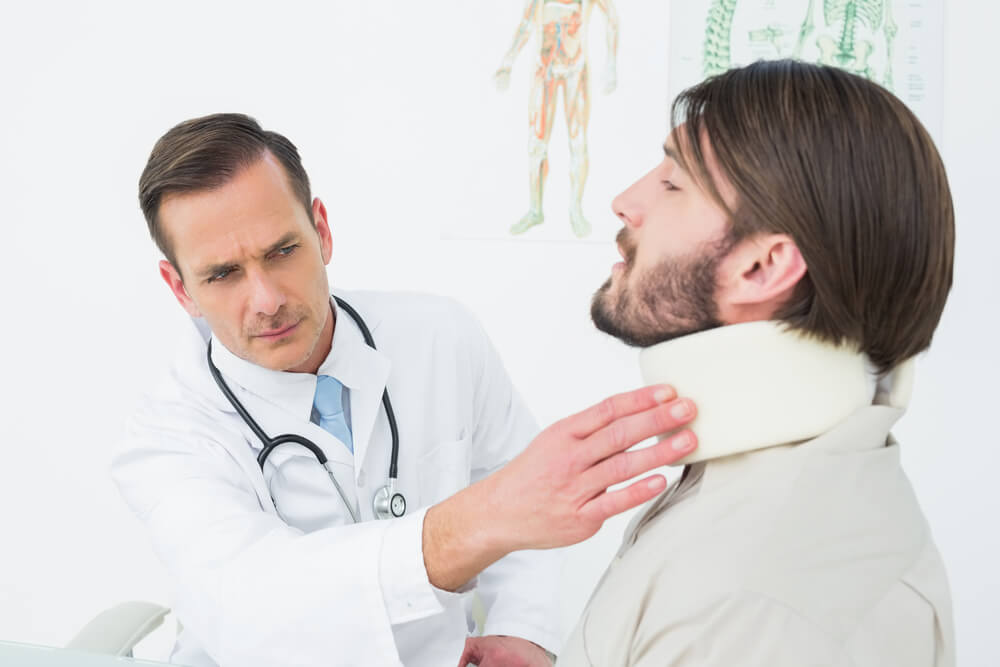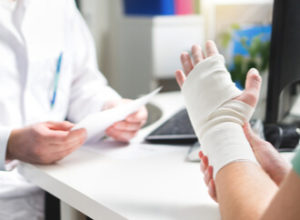
Many injuries caused by car accidents are immediately obvious, such as broken bones and cuts. However, others are not. The body responds to stress by releasing adrenaline, which blocks pain. That’s why it’s always best to seek medical help after an accident, even if you feel fine.
The Indiana car accident attorneys at Truitt Law Offices are here to explain why some accident victims avoid seeking medical care and what you can do to protect your health and legal rights after a crash. To learn more, contact our firm for a free initial consultation.
Table of Contents
When Should You See a Doctor After a Car Accident?
You should see a doctor as soon as possible after a car accident – even if you feel fine immediately after the accident. Not only can the trauma of a car accident hide the severity of any resulting injuries, but some may take days or weeks to manifest themselves. That means you could be suffering from a serious, even life-threatening injury that you have no way of noticing until you’ve consulted with a doctor and had an examination and other tests.
However, some people find going to the doctor uncomfortable, impractical, or otherwise difficult. Studies suggest many Americans avoid going to the doctor even when they believe they need care. The reasons vary from person to person. But one study published in the Journal of General Internal Medicine found that some common factors include the following:
- Critical opinions about seeking care – More than a third of participants reported having negative feelings about going to the doctor based on unfavorable views of physicians, medical facilities, or the healthcare industry.
- No or low perceived need for medical care – More than 12 percent of participants reported that they didn’t think they needed medical care. Some believed their illnesses or injuries would improve.
- Traditional barriers to seeking care – More than half of the participants didn’t seek care due to “traditional barriers.” These barriers include the high cost of medical care at about 24 percent, time constraints at 16 percent, and lack of health insurance at 8 percent.
Regardless, you should plan to visit a doctor no more than 72 hours after any car accident. Putting it off can be a serious mistake. Not only do you risk missing life-saving care, but you could also jeopardize your legal case. This is because records and bills from health care facilities are among the most critical pieces of evidence establishing losses and tying them to the accident. Many insurance policies even require that you see a doctor within this window for your medical care to be fully covered.

Can a Doctor’s Report Be Used as Evidence in My Accident Claim?
Doctors’ reports and other medical records can be essential evidence in a car accident claim. This can include evidence such as the following:
- Paramedic or ambulance reports
- Triage notes and admittance charts
- Initial treatment records from emergency rooms or urgent care clinics
- Medical history records, including physicians’ and nurses’ notes
- Prescription records, including medication names and dosages
- Medical narratives, including diagnostics and prognostics
- Imaging studies and other diagnostic test results
- Consultations, referrals, and correspondence from physicians
- Records and line-item bills from initial and follow-up appointments
This medical evidence can serve several purposes in your Indiana car accident case. Your medical records establish a formal, date-specific connection between the crash and your injuries. These records also illustrate the extent and impact of your injuries. And the test results and doctor’s notes reveal the potential long-term effects you are likely to suffer from your injuries. Together, these elements paint a complete picture of the personal and financial losses you have incurred due to the crash.
What Happens If I Do Not See My Doctor After a Car Accident?
If you don’t seek medical care after a car accident in Indiana, it could harm you in more ways than one. Most importantly, you may suffer from additional or aggravated injuries if you don’t get the necessary care.
But not seeing a doctor can also make it significantly more difficult to recover compensation. The insurance company might blame you for your injuries and suggest that they weren’t related to the car accident or that you made them worse by not addressing them in time. Without medical records to back you up, you’ll have difficulty proving otherwise.
Even if you had a legitimate reason to avoid or delay seeking treatment, the insurance company is more likely to minimize or deny your claim if you didn’t get care quickly. You should also remember to continue attending all follow-up appointments as scheduled. Don’t allow the insurance company to argue that your injuries aren’t covered.
How Long After an Indiana Car Accident Can You File a Lawsuit?
You have just two years from the date of the car accident in Indiana to file a personal injury lawsuit in civil court. If you try to file your suit after the deadline has passed, the court will most likely dismiss your case. At that point, you will lose the chance to file a suit through the civil courts.
Although this deadline does not apply to car insurance claims, negotiating a fair settlement will be more difficult if the insurance company knows you can’t hold them responsible in court. That’s why speaking to a knowledgeable car accident attorney after a crash is so important.
Contact an Indiana Car Accident Lawyer Today
If you were involved in a car accident in Indiana, you might have been injured even if you didn’t feel hurt immediately. Protect your health and legal rights by seeking prompt medical care and speaking to a trusted car accident lawyer. Contact the legal team at Truitt Law Offices today to learn more about your legal options in a free case review.








